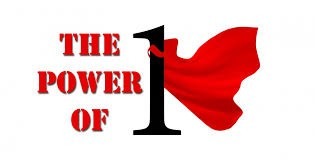Parshas Behar-Bechukosai
Who Are You Surrounded By?
“You shall not make idols for yourselves….” (Vayikra 26:1)
In 1947, the members of the Mirrer Yeshiva arrived in America from Shanghai, China. The mashgiach, Rav Chaskel Levenstein zt”l, together with some others, settled in the East New York section of Brooklyn. At that time, it was a predominately Jewish neighborhood. After a few months, Rav Chaskel unexpectedly decided to move to Israel, despite the great dangers there at that time. When he was asked why he suddenly decided to leave, he responded, “For practically the first time in my life I see wanton disregard for the holy Shabbos by fellow Jews. I feel that this constant exposure is weakening my own fear of even accidental violation of Shabbos, and I must leave ….” (Messages from Rav Pam by Rabbi Sholom Smith)
Rabbi Yossi son of Kisma said, “ One time I was walking along the way and a certain man met me. He greeted me and I returned the greeting. He said to me: ‘Rabbi, where are you from?’ I responded: ‘I am from a large city of scholars and scribes.’ He said to me: ‘Rabbi, would you be willing to dwell among us in our place, and I will give you hundreds of thousands of gold coins, precious stones and pearls?’ I said to him: ‘Even if you would give me all the silver, gold, precious stones, and pearls in the world, I would not dwell anywhere other than a place of Torah.’ (Pirkei Avos 6:9)
In Parshas Behar, the Torah exhorts us not to succumb to the grave sin of idolatry (Vayikra 26:1). Rashi is bothered by the obvious question. The Torah already warned us, in the Ten Commandments and in numerous other places, not to serve idols. Why is this prohibition repeated here? Rashi answers that this is connected to the previous psukim which discuss the case of a Jew who sells himself as a slave to a non-Jewish master. The Torah is warning him to be careful. Now that he lives in the home of a non-Jew, he should not say to himself, ”Since my master acts immorally, I will be like him. Since my master worships idols, I will be like him. Since my master violates Shabbos, I will be like him.”
This Rashi is hard to understand. The slave’s master is not Jewish. Thus, he is not obligated to follow the Torah and fulfill the mitzvos. The Jewish slave, on the other hand, is obligated in ALL mitzvos even though poverty or sin forced him into selling himself as a slave to a non-Jew. How could this person compare himself to his non-Jewish master, thinking that he was not obligated in mitzvos? Especially since, according to the Ibn Ezra the non-Jew was only permitted to purchase the Jewish slave on the condition that he allow the Jew to be able to keep the mitzvos. The Jewish slave cannot be compelled to serve idols or profane Shabbos.
Rav Avraham Pam zt”l says (Messages from Rav Pam by Rabbi Sholom Smith) that this teaches us a vital lesson for life. A person is greatly influenced by his surroundings! A Jew can be Torah observant. He can be learning Torah, keeping Shabbos and fulfilling all the mitzvos. Yet, when he sees others around him doing the wrong things, it can influence him to do the worst possible sins! The slave master’s behavior should have repulsed and disgusted him. He should have been turned off by the immorality in the home. And, initially, he probably was turned off! Unfortunately, after a while he will begin to tolerate the disgusting behavior and eventually, he may even come to imitate it. Or, at least, it may lead him to become more lax in his mitzvah observance. For example, when he sees unrestricted violation of Shabbos, even by the non-Jew, it could weaken his resolve to keep Shabbos Kodesh. Such is the influence of one’s environment.
Since the influence of our environment is so pervasive, Rav Pam zt”l says that we should be so careful about where we choose to work and to live. The spiritual dangers inherent in today’s workforce can be devastating!
The external influences around us are stronger than we can imagine!
We are only fooling ourselves if we think that spending time with the wrong people
or viewing certain things will not influence us poorly.
Everything that we see has an impact on us and can pull us down spiritually.
Conversely, being in the proper environment can help raise us to new heights!
Let us always surround ourselves with good people
whose very presence will influence us to reach even higher heights!





